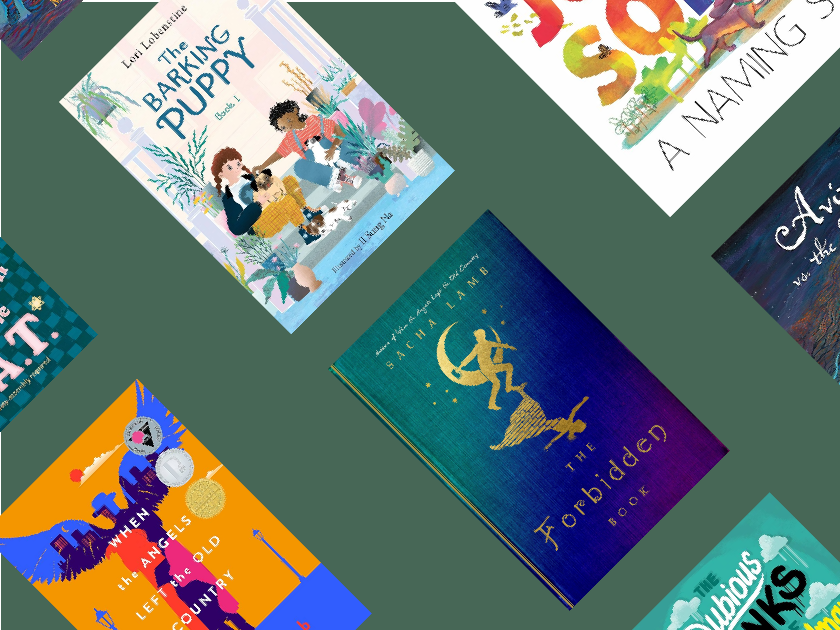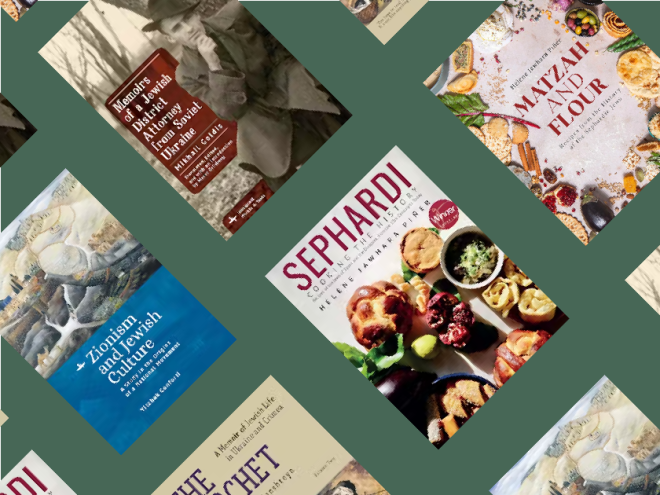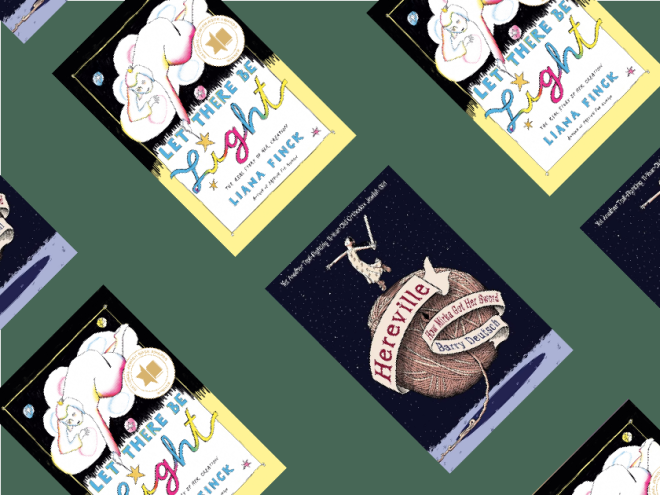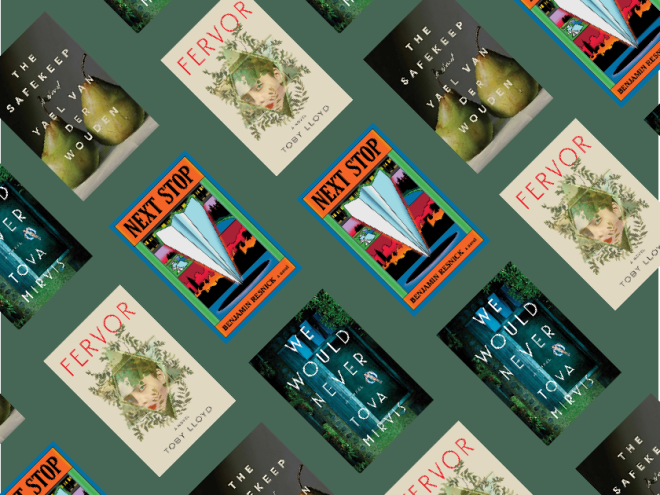
What’s the scoop on publishing? What Jewish books are agents, editors, and publishers especially excited for us to read? JBC’s series BookWatch is here to answer these frequently asked questions. Each month, a publishing insider writes an email to introduce themselves, give us a behind-the-scenes look at their work, and tell us about forthcoming Jewish books they can’t wait to usher into the world.
This piece originally appeared in a JBC email on Friday, October 3. Sign up here for our emails to be one of the first to know the latest Jewish literary news!
You don’t have to have read Dara Horn to understand the dark humor of the phrase “People love dead Jews.” You just have to be a reader longing for stories that reflect the complex reality of living as a contemporary Jewish person. If, like me, you were a gay Jewish person growing up in the sixties and seventies, you were, as they say, “twice blessed” with a lack of representation. During my youth, books featuring characters who were gay and lived to tell about it were practically nonexistent. And there were almost as few stories in which Jews actively engaged with their religion. If they did, it was most likely a deadly one, featuring Nazis.
Within corporate publishing it’s difficult to break through long-standing (and rarely examined) assumptions about a book’s potential audience. Until the collection Am I Blue? by Marion Dane Bauer broke through to sell tens of thousands of copies, no acquiring editor had a “comp” with which to convince a reluctant, prediction-conservative sales force that they could sell a sufficient quantity of books with LGBTQ+ people in them in order to meet a corporate bottom line. Through the ’90s (and even today, I’d guess) the same problem held for Jewish Books — with the exception of Holocaust (and on the rare occasion Hanukkah) books. A lovely book about a girl solving a mystery at a Jewish summer camp was repeatedly rebuffed by an acquisitions committee. I pushed through a gorgeous translation of a Norwegian love story set during World War II — but was asked to put more swastikas, bigger ones, on the cover. ’Cause that would SELL.
Hence the prevalence of the “Single Story” in Jewish books for young people. Judging from the literature available, you’d think that Jews were uniformly Ashkenazi. And dead. (If you want to know how destructive this can be to a writer’s imagination, ask me about the difficulty I had capturing my own mother’s voice subtly and accurately in Pearl Moscowitz’s Last Strand.)
When I founded Levine Querido, I wanted to challenge the “single story” that was available to so many people. Not just Slavery. Not just Oppression. Not just the holocaust. All of our stories.
Our Vision
So I seek variety, humor, nuance and a generous, determined embrace of unlimited source material for all our books. We Jews are part of this whole wide world and its history, not only in the month of December, or during the years 1939 – 1945.
Joyful Song by Leslea Newman and Susan Gal is a gorgeous example of this. A young boy (in a colorful, contemporary Southern California neighborhood) is walking to shul with his moms for his new baby sister’s naming ceremony. As they encounter neighbors one by one, Zachary almost slips and announces the baby’s name too soon. But his moms playfully intervene, and a boisterous, exuberant parade of well wishers accumulates on the way to shul for the denouement.
New and Established Voices
LQ introduced Mari Lowe to audiences in the spring of 2022 with Aviva vs. the Dybbuk, a book about a grieving girl and her struggling mother in a contemporary Orthodox community. (And no, she isn’t “fleeing” the community, as another single story might have it.) Aviva vs. the Dybbuk won the Sydney Taylor Award, as did Mari’s second book, The Dubious Pranks of Shaindy Goodman—which was also the recipient of a National Jewish Book Award!
This season, we’re stoked for Mari’s Beinoni, a middle-grade fantasy adventure that weaves Jewish mysticism into a dynamic new magic system and a heroic quest. The book follows Ezra, who believes he’s the Nivchar — the chosen one — who, on the day of his bar mitzvah, will fight a battle that will determine whether peaceful, bland Beinoni time continues or gives way to violence and uncertainty. The story asks questions about balance, responsibility, and what it means to grow up in an uncertain world while staking the claim that Jewish tradition can underpin inventive and exciting fantasy.
In the fall of 2022, we introduced a writer we feel was an inheritor of the legacies of Chaim Potok and Sholom Aleichem: Sacha Lamb. Sacha’s debut novel, When the Angels Left the Old Country (about an angel and a demon who go on a quest to rescue Jewish immigrants) won the Sydney Taylor award and the Stonewall Award and a Printz honor — a wonderful trio of recognition that attests to the range a Jewish book and author can aspire to. Lamb’s sophomore novel, The Forbidden Book, was just announced as the winner of the New England Bookseller’s award, further establishing Lamb as one of the great talents of our time.
Then there’s Abby White’s debut YA novel,D. J. Rosenblum Becomes the G. O. A. T., which tackles grief, family, and identity through a young woman investigating her cousin Rachel’s death as the only one convinced it was foul play. Abby has crafted what editor Irene Vazquez describes as “a bowl of matzo ball soup dumplings for anyone learning to chart their own path, navigate new friendships and crushes, and figure out how to love — and live — after loss.”
Not every Jewish story we publish explicitly centers on Jewish themes even if it is written by Jewish writers, and I think that’s important, too. The Barking Puppy, based on author Lori Lobenstine’s real-life experience, tells the heartwarming story of a biracial girl, her adoring godmother, and the first “by dogs, for dogs” newspaper. The story is set outside of Boston. It’s about friendship, community, and the power of creativity — values that resonate deeply within Jewish tradition, even when they’re not explicitly Jewish stories.
Looking Ahead
I hasten to add that we do honor the legacy and importance of the Holocaust, especially when we recognize a story that may not be familiar to readers. In spring 2026, we’re publishing The Not So Quiet Life of Marcel Marceau, a picture book that tells of Marceau’s early life as a sensitive French-Jewish boy enduring Nazi persecution and how he became the famous mime we all know. Coauthored by Jenn Bailey and Sherry Bushue, it’s illustrated — lusciously — by two-time Caldecott honoree Pamela Zagarenski, and might be her best book yet.
My goal — our goal at Levine Querido—is that readers of all ages and all walks of life will find a rousing and emotionally resonant story from our catalogue. Because that’s what it’s all about for me. Finding stories that, in their specificity, speak to the universal.
Jews — with our rich tradition of storytelling, our complex relationship with history, and our deep engagement with questions of identity and belonging — have something essential to offer readers of all backgrounds. At Levine Querido, I’m not just publishing Jewish books; I’m creating a space where Jewish creativity can flourish in all its forms, contributing to a broader literary conversation that honors both tradition and innovation.
Arthur A. Levine founded Levine Querido in April 2019, building on his distinguished thirty-five-year career as an industry leader. During his tenure, he guided numerous award-winning books, including two Caldecott Medal winners: Mirette on the Highwire by Emily Arnold McCully and Officer Buckle and Gloria by Peggy Rathmann.
He has proudly partnered with a long list of acclaimed creators, including J.K. Rowling, Philip Pullman, Markus Zusak, and many more. His mission has always been to bring a diverse selection of the world’s best literature to American readers. At Levine Querido, he continues this mission by championing powerful and unique voices from a multitude of cultures, both globally and at home.
Under his leadership, LQ has become a trusted source for books celebrated for their power, beauty, and craftsmanship. The company’s unwavering commitment to diverse storytelling has led to major awards and national bestsellers from creators like Daniel Nayeri, Shaun Tan, and Andrea Wang. Levine Querido is also intensely proud to be the only independent publisher in the past five years to have won all three of the ALA’s most prestigious awards: the Caldecott, Newbery, and Printz. In addition to overseeing the company, Arthur personally edits eight to ten books annually.



